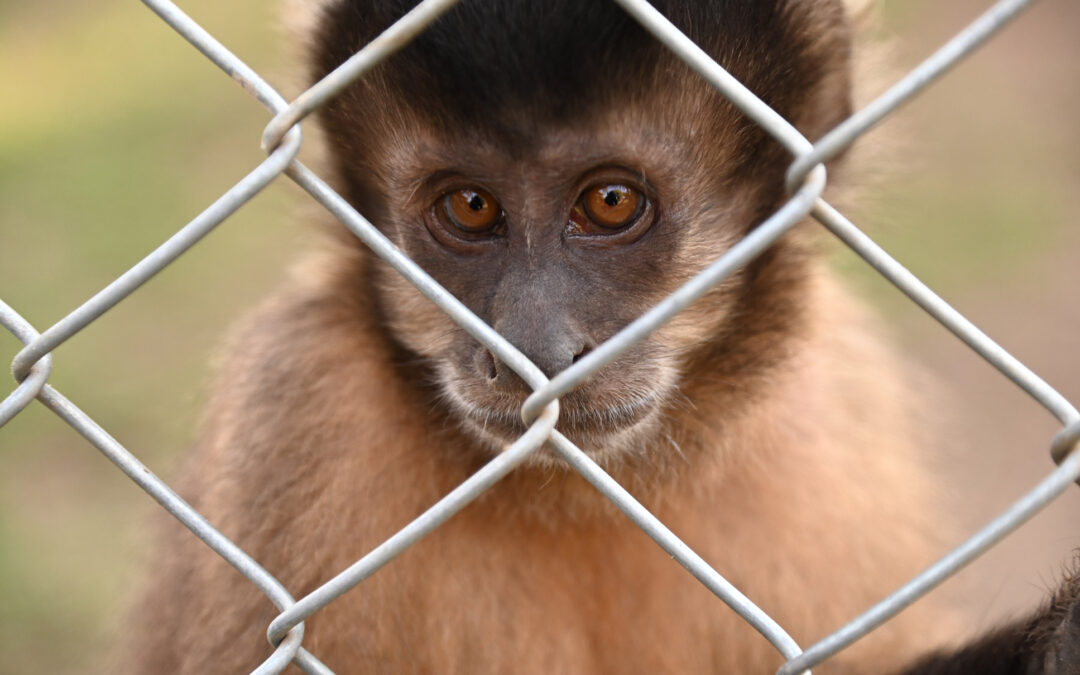Animal trafficking is the third largest illegal activity in the world, just behind drugs and arms traffick. Illegal trade can reach over 38 million animals.
Wildlife is removed from its natural habitat and is illegally traded.
Illegal trading meets various interests, such as the sale of pets, serving private collectors, trafficking for non-authorized scientific research, in addition to hunting for food and raw material in traditional medicine.
According to specialists, in the last few years online traffick has grown frighteningly through social media. Animals are offered and traded via the Internet, replacing traditional street markets. Digital world has introduced more agility in buying and selling animals. Unfortunately, there is still a high demand for this. Peoples’ lack of awareness allied to the lack of a more efficient control keep this type of crime live and growing, on a year after year basis.
Constant removal of animals of the same species could lead to local or total extinction, besides affecting other species with which these animals relate to. Most animals captured in Brazil are traded within Brazilian territory and the most affected regions are the North, Northeast and Center-West.
Once captured, animals are submitted to different aggressive practices during transportation to the consuming centers. Besides, they are placed in shared cages, without room for locomotion. They will eventually become undernourished and die. Out of every ten animals, nine end up dying before reaching destination. In other words, when people acquire a wild animal they are responsible for the removal of some ten animals from Nature – nine of which are killed and one that will live deprived of liberty.
Illegal trade generates irreversible impacts in the overall balance. Do not buy wildlife. Do not condone this crime!

